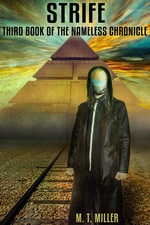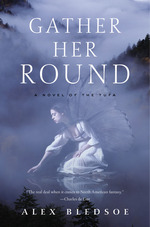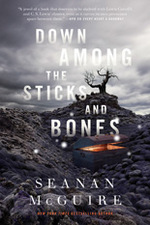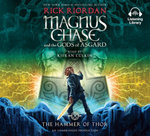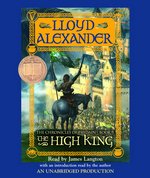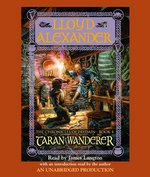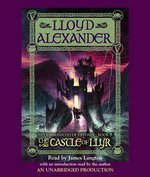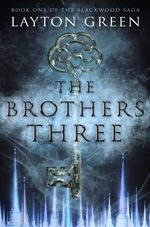 The Brothers Three
The Brothers Three
by Layton Green
Series: The Blackwood Saga, #1Kindle Edition, 332 pg.
Cloaked Traveler Press, 2017
Read: August 4 – 8, 2017

Ever since Edmund, Lucy and Eustace got sucked into that tacky painting and into the sea in Narnia, I’ve been a sucker for a good portal fantasy*. Which is exactly what Layton Green has given us here.
Will Blackwood works for a general contractor, with the occasional shift at a medieval-themed family restaurant where he will engage in stage fighting, and spends a lot of time reading fantasy novels. He’s suffered from panic attacks since childhood and that’s kept him from much more. His buddy, Lance, a New Orleans police officer will occasionally take him on ride-alongs, but he’s just not up for much more excitement. His older brother Caleb, is a bartender and perpetual adolescent (given time and opportunity, I’d have liked to see that explored more, because I suspect there’s more to it than meets the eye). The oldest, Val, is a corporate lawyer in New York who has served as self-appointed guardian to his brothers since their father’s death while they were children.
Until one day, things get a little strange: Will and Lance run into a zombie Rottweiler and the weird guy who controls it. Lance explains it away, but Will can’t. He knows what he saw, and apparently has a willingness to be flexible with his presuppositions about what may be real. Not long after this, the Blackwood’s godfather shows up, tells them that their father was a wizard, gives them some magical weapons and then gets kidnapped by the guy who had the Rottweiler (it was a pretty eventful conversation). Before they can wrap their minds around this, a stranger claiming to be a wizard shows up and talks to Will, telling him that Zedock is the name of the man who kidnapped Charlie — he’s a necromancer from a parallel universe where magic rules, not science.
Not only that, he’s arranged for the brothers to go to that parallel universe to learn a little about magic, their weapons and maybe find a way to defeat Zedock. Will is game, but he knows that he’s not going to be able to convince his brothers that this is a possibility. They’ve managed to convince themselves that they didn’t see anything magical and that there’s a reasonable explanation for everything going on (except Charlie’s statements) — they’re not quite at the level of the explanations that Tommy Lee Jones uses in Men in Black, but they’re close. So Will tricks them into triggering the portal to the other world with him (and Lance gets sucked through it, too).
Even in a world clearly not our reality — with swords, magical creatures, and different looking streets in New Orleans — it takes time for those who aren’t Will to accept what’s going on. But they eventually do, and hire some locals to help them get to a fortress where they should be able to find something they can use to challenge Zedock. I seem to be talking about the willingness of Val, Caleb and Lance to accept what they’ve seen and experience — but that’s a pretty big plot point. I like the way they struggle with this, unlike what goes on with kids in portal fantasies who seem to swallow the whole concept in seconds
The travel isn’t easy — it’s not long before all of them get to learn how to fight with pre-modern weapons. Val shows some signs of magical ability and begins training in its use, while Will learns how to use a sword in a fight that doesn’t happen on a stage, and Caleb picks up a trick or two from a thief. They don’t just train and travel — they see and fight creatures straight out of a D & D manual. A lot more happens, of course, but I don’t want to give it all away — so I’ll just sum up by talking about how the adventurers they travel with are a great collection of characters, pretty compelling, and just what’s needed to keep the story move forward and acclimate the dimension-jumpers to this world.
There is real peril — as demonstrated by enough deaths to satisfy the grimdark fans while not really being a grimdark world. Sure, there were a couple of Red Shirt deaths (Red Tunic deaths?), but characters you assume are safe turn out not to be after all. I read one paragraph a few times just to convince myself that I read about the gruesome death of a major character actually happened. Even without that, the way this story is told isn’t what you expect — there are secrets, ulterior motives, and barrels of denial everywhere. It’s very compellingly and interestingly put together.
The Brothers Three is well-written, skillfully structured, and well-paced — there are some nice turns of phrase throughout the novel, too. Green is the real thing, giving the readers a good story, great characters, an interesting world (or pair of them), in a well-written package. Book 2 comes out next month and it’s on my TBR. I’m resisting the impulse to move it higher, but it’s not easy.
—
* Yeah, I read The Voyage of the Dawn Treader first — I read series out of order in my childhood. As a kid, I was practically feral, it seems.
Disclaimer: I was provided with this copy for an honest review by the author.
—–



